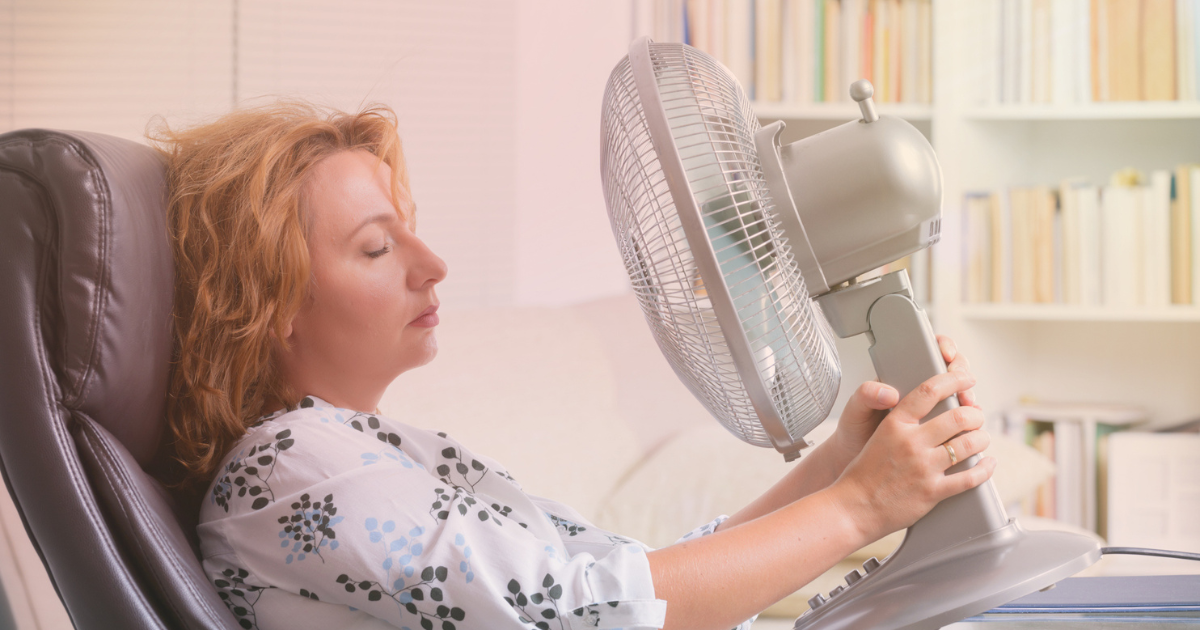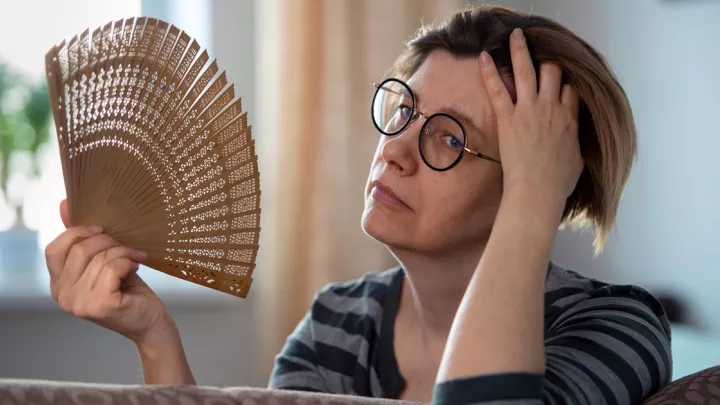Top 7 products for menopausal women

Each woman is unique and will experience menopause differently. Some may not be bothered at all, while others may experience distressing symptoms like hot flashes or vaginal dryness.
The good news is regardless of the symptom; treatments are available to help menopausal women feel more comfortable. And just as each woman’s experience is unique, so are the options available for treatment.
“There is not one recipe for treating menopause,” says Karen Carlson, MD, OB-GYN. “There are so many different ways you can go about it, but you have to find the specific recipe that works for the specific person.”
Dr. Carlson says most patients have one or two most bothersome symptoms, and she starts by treating those. While finding the right treatments may take time, it is possible to significantly improve symptoms and quality of life during menopause.
Symptom: Hot flashes
Many women experience vasomotor symptoms, or hot flashes, which are sudden feelings of intense warmth in the upper body. These can happen at any time and may be greatly disruptive to sleep.
There are several things to try that may help, such as:
- Becoming aware of triggers, such as hot drinks or baths, and avoiding them
- Setting your air conditioning to a lower temperature
- Using lightweight bed covers and keeping ice water within reach at night
When these are not enough, women may consider hormone replacement therapy, or HRT. Despite its controversial history, Dr. Carlson says HRT poses low risks and high benefits for many women, and a knowledgeable provider can help a patient decide if they are a good candidate.
Hormone replacement therapy comes in various forms, including patches, topical creams and oral medications.
“We usually recommend an estrogen patch and then oral progesterone since the patches are less risky for blood clots than oral estrogen,” Dr. Carlson says, adding that compounded creams are not recommended since they are not FDA-approved.
If a woman does not want to, or can’t, take HRT, there are other products to treat hot flashes, such as Paxil®, a selective serotonin reuptake inhibitor that has been approved to treat hot flashes.
Products: Hormonal replacement therapy, Paxil®
Symptom: Vaginal dryness
As estrogen levels fall due to menopause, vaginal dryness and irritation of the vaginal skin is common. It can cause discomfort, painful sex and frequent urinary tract infections.
“It’s almost inevitable over time that women who aren’t taking some form of hormone replacement therapy will experience vaginal dryness,” Dr. Carlson says.
While HRT will help with this, women may also or alternately choose to use an estrogen-containing cream on the area or a moisture-providing suppository.
“The nice thing about local estrogen therapy is there is not really any risk to it because you’re not getting any systemic levels of hormones and their side effects,” Dr. Carlson says.
A medication called Osphena® treats vaginal dryness and painful intercourse. However, it should only be taken for up to one year. In addition, several over-the-counter products can be used alone or in combination with prescribed estrogen cream.
“I’ve heard people have really good luck with K-Y Liquibeads, which is a personal moisturizer that you might use just a couple times a week to keep the vagina moistened,” Dr. Carlson says. “It doesn’t have any hormones in it, and some people will use it in combination with estrogen cream, alternating one and then the other nightly.”
Products: Local estrogen cream, Osphena® and K-Y Liquibeads
Symptom: Weight gain
Many women experience weight gain or a redistribution of body fat during menopause. Because being overweight can increase your risk of many conditions, including hot flashes, minimizing weight gain is important.
Dr. Carlson recommends resistance training to retain or build muscle mass. She says that HRT can also help to minimize weight gain.
Additionally, menopausal women who are trying to avoid weight gain should:
- Avoid a sedentary lifestyle
- Eat a healthy, whole-foods-based diet
- Try to get seven to eight hours of sleep
Products: Resistance-training programs, HRT
There is help
Above all, if you have bothersome menopause symptoms, remember help is available, and you don’t have to remain miserable.
“Women may be having these symptoms for up to nine or 10 years, and that’s a big deal,” Dr. Carlson says. “If you’ve made the lifestyle changes and are still having trouble with symptoms, moving on to something that will help you is definitely reasonable.”
Call 800.922.0000 to schedule an appointment with one of our doctors.







